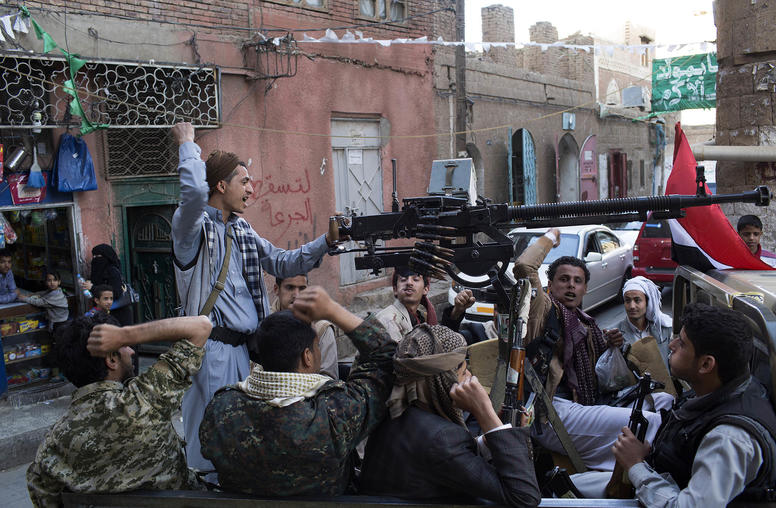Sarhang Hamasaeed
Contact
Please submit all media inquiries to interviews@usip.org or call 202.429.3869.
For all other inquiries, please call 202.457.1700
Sarhang Hamasaeed is the director of Middle East Programs at the U.S. Institute of Peace (USIP) in Washington, DC. He joined USIP in February 2011 and served in different positions before becoming director in 2016. His areas of focus include political and conflict analysis, dialogue processes, reconciliation and post-conflict stabilization, ethnic and religious minorities, and organizational development.
Hamasaeed is a regular lecturer at the Foreign Service Institute on the subjects of ISIS and challenges to governance in Iraq and is featured in events and briefings on Iraq, Syria, Yemen and the Middle East. He provides analysis and gives interviews to international media. He was a member on the Task Force on the Future of Iraq and the Rebuilding Societies Working Group, both initiatives by the Atlantic Council’s Rafik Hariri Center for the Middle East.
Hamasaeed has more than 15 years of strategy, management, and monitoring and evaluation experience in governmental, nongovernmental, private sector, and media organizations. His prior positions include deputy director general at the Council of Ministers of the Kurdistan Regional Government of Iraq (2008-2009), where he managed strategic government modernization initiatives through information technology with the goal of helping improve governance and service delivery; program manager for the Research Triangle Institute International (2003-2004), where he managed civic engagement and local democratic governance programs in Iraq; planning and relations manager at Kurdistan Save the Children (1997-2002); and correspondent for the Los Angeles Times and other international media organizations.
He holds a master’s degree in international development policy from Duke University (2007) and is a Fulbright alumnus.




